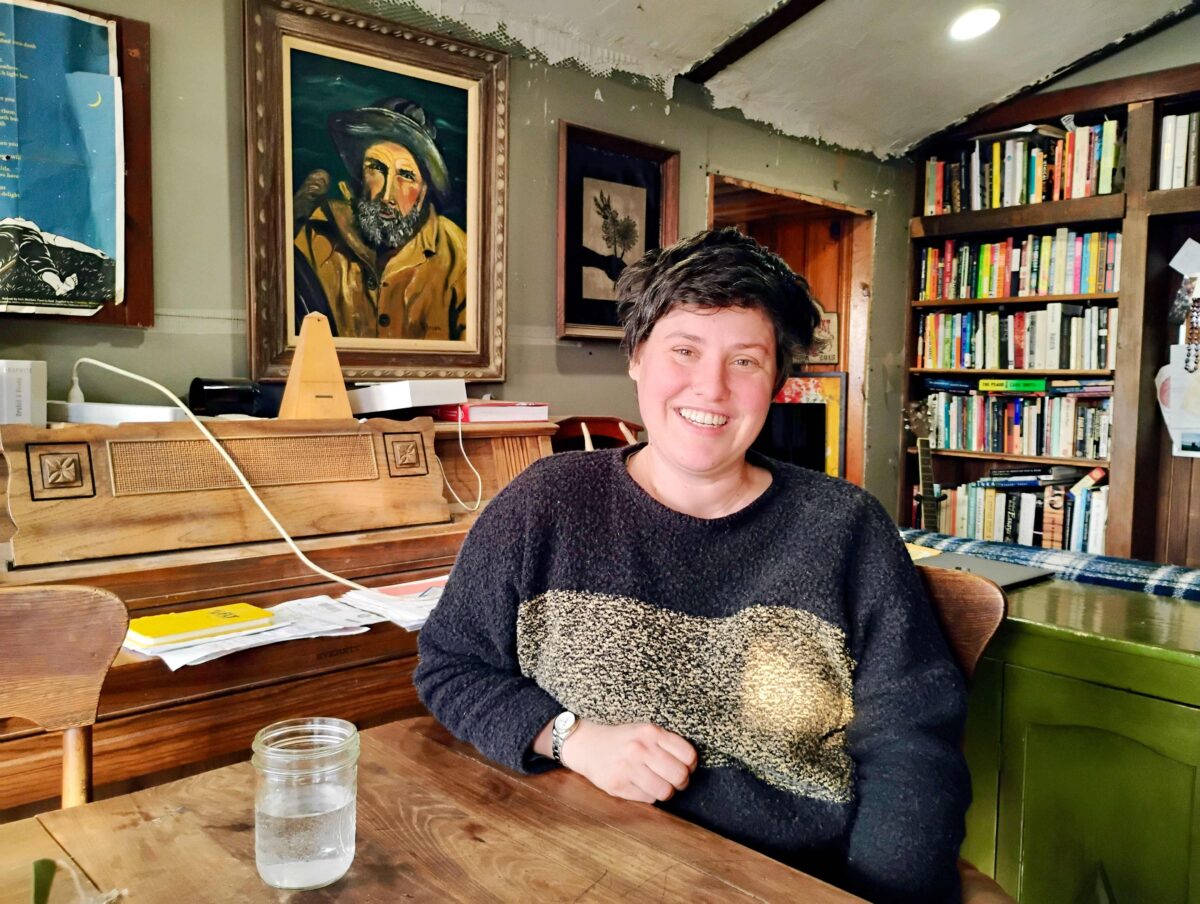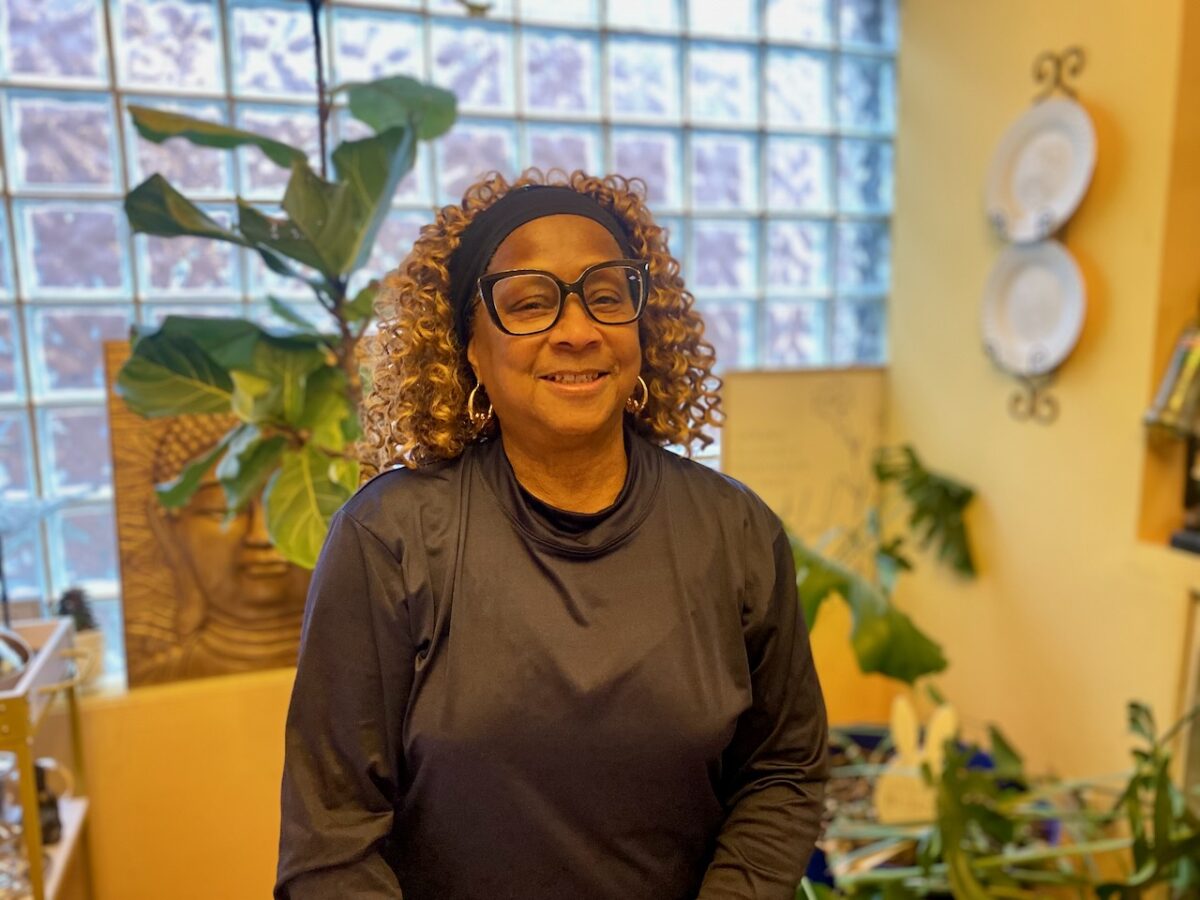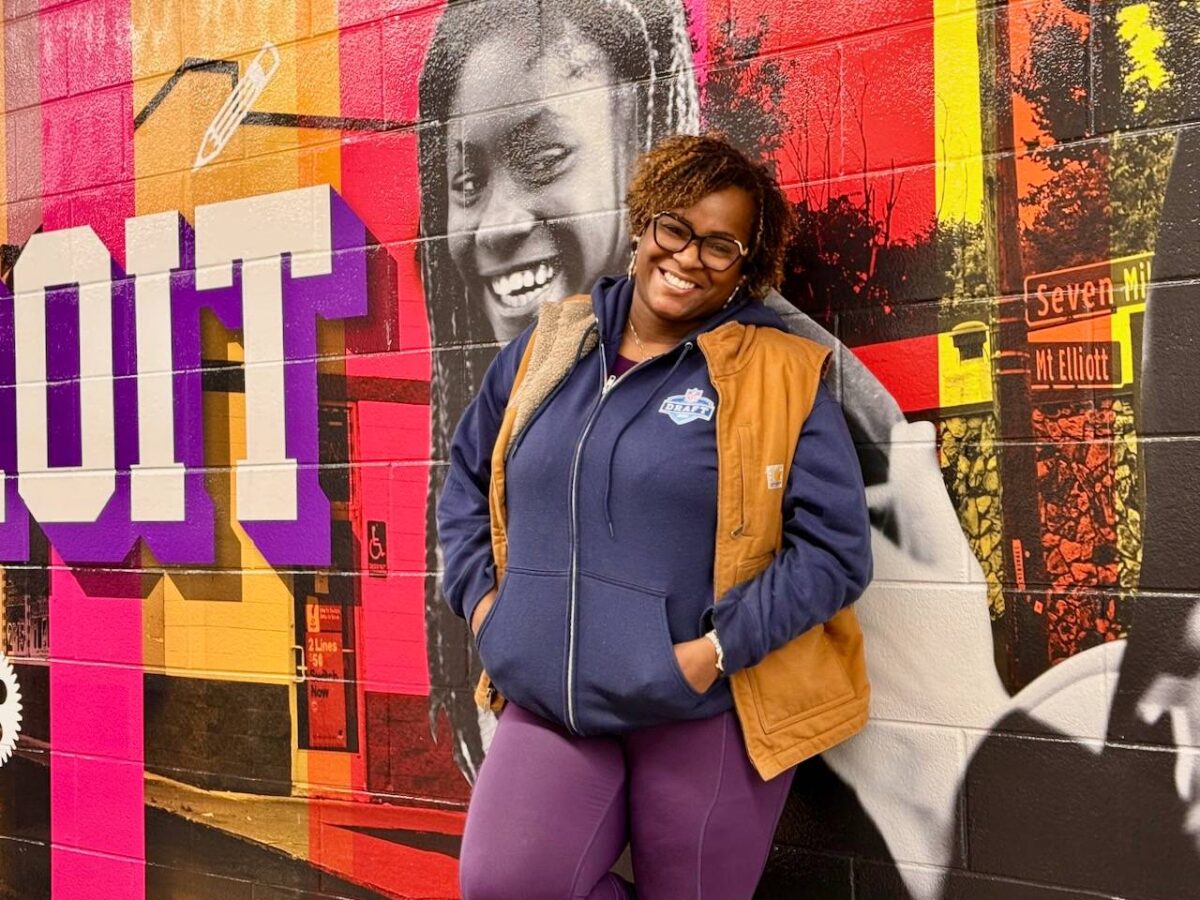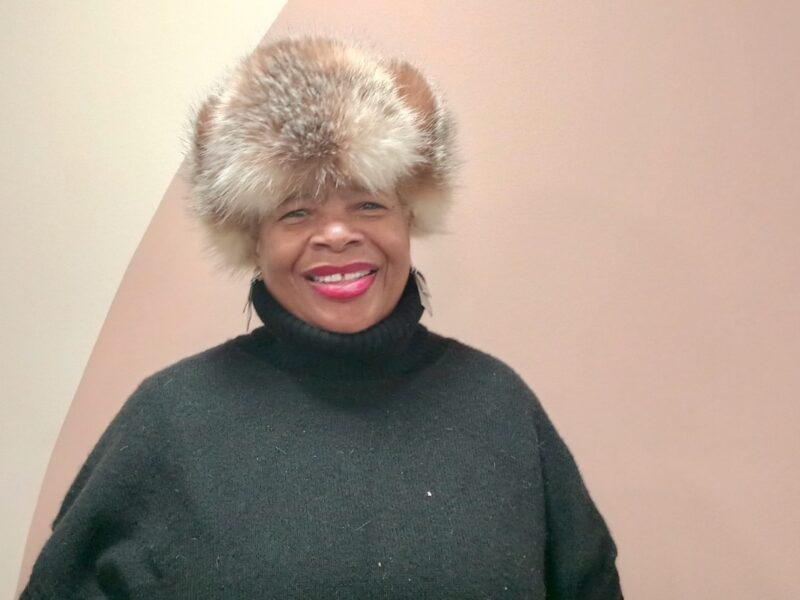Overview:
-“When we started visiting Detroit and seeing how much urban agriculture was here, it felt like a perfect fit,” says Brittney Rooney of Brightmoor's Beaverland Farms.
-The farm has partnerships with Core City's Fisheye Farms and the east side's Coriander Farms.
-The final step for Beaverland Farms is to become a cooperative space, Rooney said.
This story is published as part of Planet Detroit’s 2025 Spring Neighborhood Reporting Lab, supported by The Kresge Foundation, to train community-based writers in profile writing. This year’s participants will focus on highlighting grassroots leaders driving positive change in Metro Detroit.
Early March marks a time of awakening at Beaverland Farms, when February’s snow turns to mud under the gray Detroit skies. It’s hard to imagine the explosion of color and life that will burst forth in a few months. Plants peeking up in the hoop house are hints of what is to come, but for now, the slower pace allows head farmer Brittney Rooney time to put the finishing touches on plans for the upcoming season to broaden Beaverland Farms’ reach to customers in the neighborhood.
Rooney’s presence in Brightmoor has been instrumental in shaping the neighborhood’s identity as a hub for urban farming.
She and her partner, Kieran Neal, purchased Beaverland Farms in 2015. It was a bare-bones operation with a few farm tools and a single hoop house. Over the next decade, they expanded Beaverland to a 4-acre, production-scale farm, providing full-time employment for female growers.
Rooney loves being a farmer, but it has not always been her path. She caught the farming bug in her third year at Loyola University in Chicago.
“I was considering going into food law, but I decided that I needed to see the production side if I was going to be a lawyer for farmers. I took an internship on a farm and fell in love with it. I decided I didn’t want to do anything with law or policy — I just wanted to farm.”
When Rooney and Neal graduated, they were two young people with no money, so buying a large farm didn’t make sense.
“When we started visiting Detroit and seeing how much urban agriculture was here, it felt like a perfect fit,” Rooney said.
At first, Rooney and Neal practiced “guerrilla farming”— growing on vacant land without deeded ownership. Over the next five years, as the parcels of land they were farming came up for sale, they purchased one lot after another. Beaverland Farm sits on 37 city lots, or roughly 4 acres. More than half are under active cultivation.
Brightmoor in transition
The growth of Beaverland Farms reflects the neighborhood’s two-decade trajectory of households and community gardens that paved the way for small, for-profit farms to grow into a more extensive operation.
Located on the northwest side of Detroit, Brightmoor was developed in the 1920s with small, simple homes for people pouring into Detroit for work in auto factories. Detroit’s population decline in the 1970s and 1980s resulted in high vacancy rates in the neighborhood that persist today. A 2024 report by the city indicates that 60% of the land in Brightmoor is vacant or home to vacant structures, totaling some 15,000 acres.
By the mid-2000s, plentiful land attracted agriculture-minded newcomers who partnered with locals to establish community gardens and a support network for growers.
“One of the biggest draws to Brightmoor and this property specifically was that we knew that there was an urban garden buzz around this neighborhood,” Rooney said. “There was already some infrastructure, like a community greenhouse and like-minded people here.”
Bill Hickey has been involved in numerous community agriculture projects since moving to Brightmoor in 2010. He describes Rooney’s willingness to use her expertise and the physical resources of Beaverland Farms to benefit the whole neighborhood, giving the community’s annual maple sugaring project as an example.
The final stage of the maple sugaring is boiling down gallons of maple sap to make syrup.
“My wife and I used to do this part in our kitchen, which made our walls run with sap. But then Brittney and Kieran stepped in, and for the past seven or eight years, they have done the finishing,” Hickey said.
“They helped build the sugar shack. They have been the rock, and Brittney does it in a very low-key way. She’s not out there saying, ‘I’m in charge!’ It’s just sort of organic.”
MORE FROM THE NEIGHBORHOOD REPORTING LAB
Is lifelong learning the key to success? This Detroit teacher says yes
Deborah Jenkins, a Detroit educator, champions collaboration between parents and teachers to secure quality education for children, while pursuing her own lifelong learning.
Lifelong advocate steps back — but not away — from Detroit’s Regent Park. Her new focus might surprise you.
Attorney Marcia Spivey, a longtime advocate in Regent Park, is dedicated to enhancing residents’ lives and recently joined Planet Detroit’s Neighborhood Reporting Lab to boost community outreach.
Heidi Ausgood shares why she joined the Neighborhood Reporting Lab. Hint: She’s a lifelong Detroiter.
Heidi Ausgood shares her story of writing about Detroit and witnessing the changes in the city’s Grixdale neighborhood.
A Detroit farm’s commitment to sustainability
From the start, Rooney said Beaverland Farms was dedicated to sustainable growth, cultivation of the land, and business expansion that is good for the community.
“The farm has always prioritized growing that is good for the environment. We make sure that we are taking a whole systems approach and that our soil is our first priority. Sometimes that means sacrificing vegetable production,” Rooney said.
“We could clear-cut everything and have no trees, and bring in compost every year, but we prefer for the system to be more regenerative with the trees supplying everything. Even though they’re also creating shade, that’s a tradeoff that we’re willing to make.”
Partnerships with other Detroit farms allow Beaverland to reach more customers and deepen its economic viability. In 2024, Beaverland Farms joined Core City’s Fisheye Farms and the east side’s Coriander Farms to expand its Community Supported Agriculture subscription program — which allows customers to pay at the start of the season and receive a weekly box of produce — as well as its wholesale offerings to local restaurants.
“We were doing 40 CSAs, but with Fisheye and Coriander Farms, we can do 85 together, and it’s half the work. Last year was the first year that we combined, and it was great in every way,” Rooney said.
Fisheye Farms owner Andy Chae said restaurants prefer a streamlined process of buying fresh produce from a cooperative of three farms rather than from each farm individually.
With secure and regular income from CSA subscriptions and wholesale, Rooney’s goal for the upcoming season is to broaden Beaverland Farms’ reach to customers in the neighborhood.
Rooney said, “We’ve always sold to neighbors at a reduced rate, and I’ve always been available, but I am ready for more people to know about a farmstand and to have somebody there full-time when people come.”
The future of Beaverland Farms
When thinking about the future of Beaverland, Rooney says she would love for it to be more of a cooperative space.
“We have a lot of partners in the work, but the final step is for it to be a cooperative space from a legal perspective. In the next year or two, I want to find a way for the people who have a time investment in the farm to share legal ownership of the land or the entity. That’s a big goal.”





